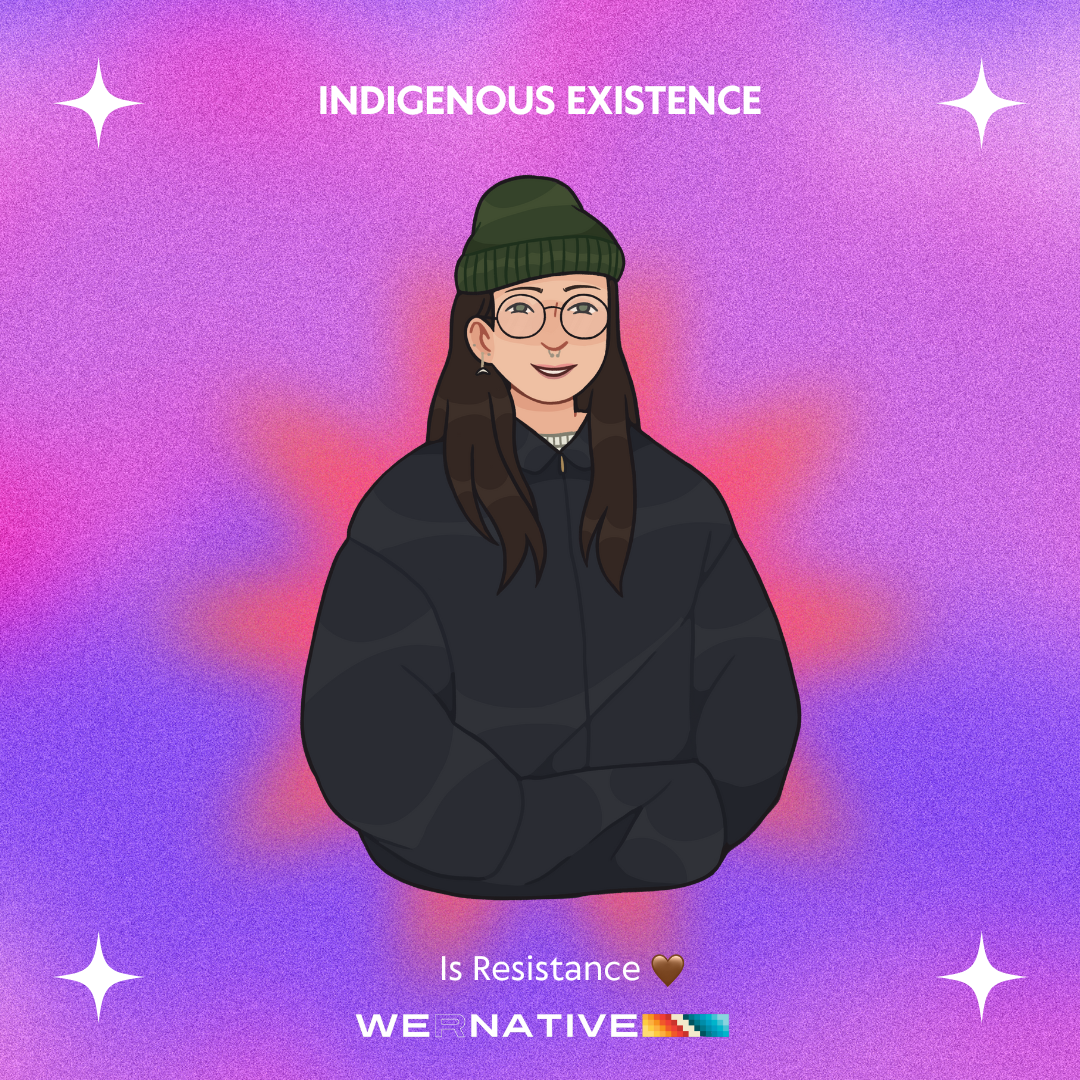As a queer, 2-Spirit Indigenous person, I have definitely struggled with my identity over the years. To be totally transparent, sometimes I still do! But as I’ve worked to better understand and build a healthy relationship with myself, I have gained some important knowledge that I can share.
Identity is Fluid, Like Water
Throughout my life, my identity has been fluid. And that’s a normal and healthy aspect of life. We as people are constantly shifting and adapting, depending on our experiences. For example, when I was first exploring my sexuality, I felt uncomfortable and unsure about identifying as a lesbian because I was also exploring my gender. Over time though, I changed my thinking. I realized that I’m lesbian because I learned more about the lesbian community and how I fit into it – it is vibrant and diverse, and inclusive of people who don’t identify as a binary (male or female) gender. This experience helped shape my view that, like water, our identity takes on different shapes, forms, and paths throughout our lives.
I’ll likely always be exploring my gender and sexuality, because they are parts of our identity that are especially fluid. This means that over time, the way you view yourself can change. We might describe ourselves with terms that stop fitting and feeling right at some point, and that is totally okay! It’s all a part of life’s journey.
Our Culture Can Impact How We Describe Ourselves
It has been valuable for me to learn about how my gender, sexuality, and identity are related to my culture. Through talking with other queer Indigenous people and researching queer Indigenous history, I have come to understand that many of our ancestral languages include words for people who are gender non-conforming, queer, or trans. This is because a lot of Indigenous communities recognize a diversity of genders that fall outside of the gender binary (the idea that there are only two genders).
While it’s likely that most of our communities had terminology for gender non-conforming, queer, or trans people, in order to stay safe during colonialism, at times our ancestors were forced to bury certain words from our Indigenous languages that describe diverse genders and sexualities. But Indigenous people have always resisted, and the words that were buried can often be unearthed. We can also choose new words to describe ourselves that fit who we are today.
Identity as Resistance
Indigenous resistance to the colonization of our languages and identities is all around us. For example, today, some Indigenous people who are gender-diverse and/or queer might use the term 2-Spirit to describe their gender and/or sexuality. 2-Spirit is an identity that only Indigenous people can hold, because it acknowledges and holds space for the unique relationships that we as Indigenous people have between our gender, sexuality, and culture. That being said, every 2-Spirit person has their own definition of what being 2-Spirit means to them.
The Take Away
Our identities are fluid, and how we identify ourselves can be a form of resistance against colonialism. We can create our own terms, like 2-Spirit, look to our ancestral languages, reclaim the terms that might have been buried, and imagine new ways to exist. We don’t have to rely on colonial languages and terminology to identify ourselves or to justify our fluid and diverse identities. Our identity is inherently cultural, sovereign, and valid. In other words, the way we choose to identify ourselves is our decision to make.
To continue learning about gender, sexuality, identity, and Indigeneity, check out these resources:
- Indigenous Queer and Two Spirit Literature Recommendations
- “What Does ‘Two-Spirit’ Mean?” (them’s InQueery Series)
- Reclaiming Space: Two Spirit and Indigiqueer tribal citizens are reminding their communities they are both LGBTQ and traditional
Author: Gillian Joseph (they/them) is a queer 2-Spirit Ihaŋktoŋwaŋ and Mdewakaŋtoŋ Dakota storyteller who grew up as a guest on Waxhaw and Catawba lands. Alongside writing, they work in the mental health field with a focus on Indigenous health sovereignty.
Published: Aug. 4th, 2023


